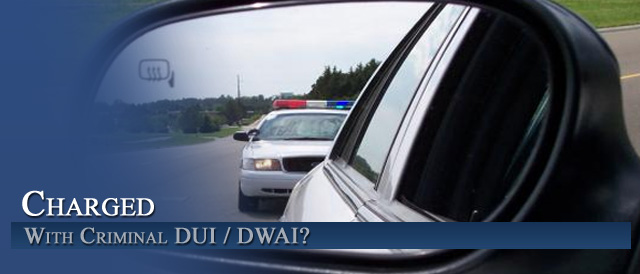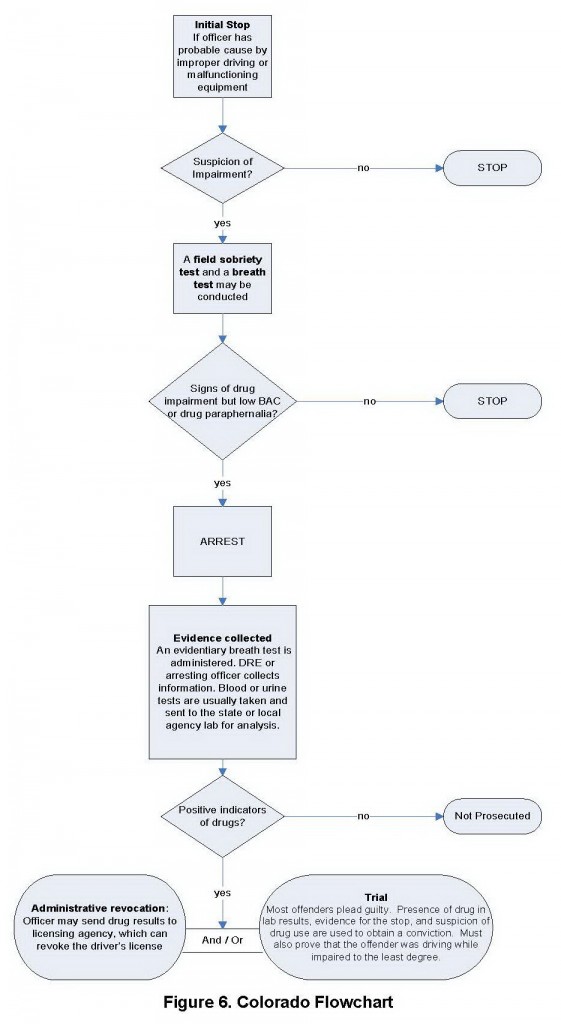




Colorado DUID Cases – Prescription And Other Drugs and Colorado Driving Under The Influence of Drug Charges
by Colorado DUID, DUI – DWAI Attorney – Lawyer – H. Michael Steinberg
Colorado DUID Cases – Driving Under the Influence of Drugs -cases are now charged much more often than in the last 40 years of my practice. Many DA’s and police departments are coordinating training to assist their officers to “spot” so called “drugged drivers” and to arrest and prosecute these cases in greater and greater numbers.
Here is the problem – as of 2012 -there are many many flaws in the training and the prosecution of these cases.
With an aging population -people are living longer than in previous generations and the medical needs have increased. This population and other populations have also increased the use of medications for anxiety, ADHD, depression and insomnia.
Arrests for DUID in Colorado are not just limited to prescribed medications; they can occur as a result of the use of over-the-counter medications for colds, coughs and allergies or the combination of a prescription medication and an over-the-counter medication may be alleged to cause driving impairment.
The rub is this – without thorough education on the impact of the consumption of these drugs – driving on these medications has lead to this massive increase in DUI-drug arrests.
Older Drivers and Prescription Medications
A 2009 AAA Study revealed that 78% of 55 and older drivers surveyed are taking more than one Rx medication and only 28% knew the impact the drugs could have on their ability to drive.
What Colorado DA”s Have To Prove
“Driving under the influence“ means
….driving a vehicle when a person has consumed alcohol or one or more drugs, or a combination of alcohol and one or more drugs, which alcohol alone, or one or more drugs alone, or alcohol combined with one or more drugs
…. affects the person to a degree that the person is substantially incapable, either mentally or physically, or both mentally and physically, to exercise clear judgment, sufficient physical control, or due care in the safe operation of a vehicle
Poor DUID Research – Poor DUIDTraining – Poor DUID Prosecution
After a DUI stop – Colorado police officers – failing to make a DUI – DWAI case – will assess for those they believe are “impaired by prescription or illegal drugs.”
Colorado Police have a great amount of legal discretion as they decide whether to make an arrest for drugged or impaired driving by a combination of alcohol and drugs.
The training today for the average police officer in detecting – let alone assessing the impact of the use of prescription drugs is poor .. And the research – especially when it comes to marijuana driving ( LINK) is worse. Police will make assumptions or conclusions based upon their field experience or their opinion, which in many – if not most cases are wrong.
There have been few if any scientific studies quantifying any illegal or legal drug use with driving impairment. The FST’s – standardized roadside field sobriety tests – developed by the National Highway Traffic Safety Administration (NHTSA) were not designed to detect drug impairment and only a very small percentage of police officers that have the necessary training in the detection of whether or not someone is under the influence of an illegal or illegal drug that has impaired their ability to drive.
Per the NHTSA “Current knowledge about the effects of drugs other than alcohol is insufficient to allow the identification of dosage limits that are related to elevated crash risk.”
The Colorado DUID Assessment Tools
When compared to decades of research on the impact of alcohol on the body – DUID or DUI-drugged driving has little more than the “call” for more research. There has been practically no useful research on the quantitative amount of any drug or substance that creates a known level of impairment. Since this is the case mounting an aggressive defense in these cases is possible.
Even if a blood test results in certain levels of prescription medications in the person’s system, a crime lab expert witness or even a state toxicologist may not be able to state – based on the present science – that THIS INDIVIDUAL – has a level of said medication that has left them impaired.
Many taking prescription drugs have built up a tolerance to those drugs. Until more studies are conducted, this is a very confused area of the law which of course can be used to the accused’s full advantage in court.
The Federal Government Put It Best In Their Assessment To Congress…
“Drug-impaired driving is a complex problem due to the large number of substances with the potential to impair driving and increase crash risk, the variations in the ways different drugs can impair driving, the lack of basic information about many potentially impairing drugs, and the differences in the ways that drugs can affect the body and behavior.
Other critical factors include the poorly understood pharmacokinetics and pharmacodynamics of many psychoactive drugs, in addition to the problems presented by individual differences, sensitivity, and tolerance, and the myriad of ways that various substances interact.”
[Comparing Drugged Driving To Alcohol Based DUIs]
“Since the effects of alcohol on driving performance are relatively well understood, it is useful to review and contrast what is known about alcohol with what is known and not known about other drugs. Ethyl alcohol is a simple molecule that is readily and fairly rapidly absorbed into the body, typically through the stomach and large intestine. Alcohol passes easily through the blood-brain barrier. It is distributed by the circulatory system throughout the body and is metabolized primarily in the liver.
The processes of absorption, distribution, and metabolism of alcohol occur at the same time. The concentration of alcohol in the body can be measured in the blood (also in the breath and in other bodily substances) and a single dose will result in a rapid increase in blood concentration, reaching a peak, and then diminishing over a period of hours. Repeated dosing will raise the peak blood alcohol concentration (BAC) and prolong the time elevated levels are present in the body. The time course during which the effects of alcohol on the body and behavior can be measured parallels the time course during which BAC is elevated in the body
..There is a close relationship between BAC level and impairment. The ability to predict an individual’s performance at a specific dosage of drugs other than alcohol is limited.”
In Colorado – The Three DUID Assessment Tools Are:
The Standardized Road Sobriety Test (SFST’s)
The ARIDE Assesment (a mid level assessment between Standardized Field Sobriety Testing (SFST) and a Drug Recognition Expert (DRE) assessment
and
The DRE (Drug Recognition Evaluations) Assessment
So What Exactly Is Colorado DUID Drugged Driving?
The allegation is that drugged driving means under the influence of any drug that acts on the brain to such a degree that one’s motor skills, reaction time, and judgment are impaired
As noted above – however – drugged driving laws have lagged behind alcohol-related driving legislation, because of limitations in the current technology for determining drug levels and resulting impairment.
Alcohol – For alcohol, detection of its blood concentration (BAC) is as follows – concentrations greater than 0.05 percent have been shown to impair driving performance; and at higher levels, 0.08 percent, all 50 states recognize this as the legal limit. But for illicit drugs, there is no agreed-upon limit for which impairment has been reliably demonstrated. In addition assessing present “stop based” drug levels is very difficult, since some drugs linger in the body for a period of days or weeks or even months after ingestion.
Some States (Arizona, Delaware, Georgia, Indiana, Illinois, Iowa, Michigan, Minnesota, Nevada, North Carolina, Ohio, Pennsylvania, Rhode Island, South Dakota, Utah, Virginia, and Wisconsin) but NOT COLORADO have passed “per se” laws, in which it is illegal to operate a motor vehicle if there is any detectable level of a prohibited drug, or its metabolites, in the driver’s blood.
In Colorado “drugged driving” is charged when driving on a drug “renders the driver incapable of driving safely.”
Defenses In DUID Cases – “You Just Don’t Know Do You Officer?”
Since the behavioral effects of other drugs are not well understood as the behavioral effects of alcohol only generalizations can be made such as high doses generally have a larger effect than small doses; well-learned tasks are less affected than novel tasks; and certain variables, such as prior exposure to a drug, can either reduce or accentuate expected effects, depending on circumstances.
Furthermore, most psychoactive drugs are chemically complex molecules whose absorption, action, and elimination from the body are very difficult to predict. And, as noted above – there are considerable differences between individuals with regard to the rates with which these processes occur.
Why The DUID Research Is So Poor
Here are some basic reasons why the research is so poor in this area…
• The large number of different drugs that would need to be tested (extensive testing of alcohol has been undertaken over many decades; whereas relatively little similar testing has occurred for most other drugs);
• There is a poor correlation between the effects on psychomotor, behavioral, and/or executive functions, and blood or plasma levels (peak psychomotor, behavioral, and executive function effects do not necessarily correspond to peak blood levels; detectable blood levels may persist beyond the impairing effects or the impairing effects may be measurable when the drug cannot be detected in the blood);
• Sensitivity and tolerance (accentuation and diminution of the impairing effects with repeated exposure);
• Individual differences in absorption, distribution, action, and metabolism (some individuals will show evidence of impairment at drug concentrations that are not associated with impairment in others; wide ranges of drug concentrations in different individuals have been associated with equivalent levels of impairment);
• Accumulation (blood levels of some drugs or their metabolites may accumulate with repeated administrations if the time-course of elimination is insufficient);
and
• Acute versus chronic administration (it is not unusual to observe much larger impairment during initial administrations of drugs than is observed when the drug is administered over a long period of time). The result of these factors is that, at the current time, specific drug concentration levels cannot be reliably equated with effects on driver performance.
The Typical Colorado DUID Case
The typical DUID case begins with a stop based on some form of probable cause such as a traffic infraction or evidence of driving associated with impaired driving such as wide turns or swerving.
Once a stop is made, the officer then determines whether the driver is impaired. The normal DUI-alcohol investigation proceeds from that point. If alcohol or drug impairment is suspected, the officer gets the driver out of the vehicle and attempts to perform the roadside sobriety test SFST.
Some also use a preliminary breath test in the field, others do not it is used to attempt to “rule out” alcohol. The drug investigation does not start unless and until impairment is evident to the officer and there is no indication of alcohol.
The So Called DRE – or Drug Recognition Expert
44 States and the District of Columbia have implemented Drug Evaluation and Classification Programs, designed to train police officers as Drug Recognition Experts.
This assessment tool – while attack able is more thorough – Here – specific police officers are trained – based on the science that exists today -to detect characteristics in a person’s behavior and appearance that may be associated with drug intoxication.
IF there is a DRE trained officer available at that point, the officer may call for a DRE, but that is dependent on the availability of DREs in the jurisdiction as well as the level of comfort the individual officer may have in pursuing a DUID case on his or her own.
Many officers suspect drugs but do not have the training and are not be comfortable with pursuing the DUID investigation. In the Denver area, there are only a few trained DRE officers, and many officers feel the wait time is too long for a DRE.
In some jurisdictions officers who are not comfortable with the DUID process patrol officers trained to process DUID cases, as well as specialized officers who may take those cases over from street officers… all are weak on the witness stand in this area of testimony.
The Blood – Urine Sample
If th driver is impaired – the officer asks for a blood or urine sample, or both, and a driver’s failure to provide a sample constitutes a refusal. Again, as in many other jurisdictions, the officers said if there is a high BAC on the breath tests, typically the alcohol violation is pursued and the drug-impaired driving violation is not pursued. Conversely, if an impaired person has a low BAC, they will then ask for a urine or blood sample. It is the officers’ general impression
Colorado DUID -Younger Drivers – Teens – and Drugged Driving
On a final and more serious note – to parents – we must admit that teens are the least experienced drivers as a group and have the highest risk of being involved in an accident compared with more experienced drivers. If you add in “pharming parties” ( pharming parties -also called pharm parties – is a term describing get-togethers where prescription drugs are exchanged and randomly ingested) which when combined with alcohol and the predictable use of marijuana or other substances that impact cognitive and motor abilities, – the results can be tragic.
Please feel free to CALL Denver, Colorado – Prescription Drug & DUI Defense Lawyer H. Michael Steinberg on DUID Cases
Please call our law firm if you have questions about ..
Colorado DUID
H. Michael Steinberg has been a Colorado criminal law specialist attorney for 40 years (as of 2012). For the First 13 years of his career, he was an Arapahoe – Douglas County District Attorney Senior prosecutor. In 1999 he formed his own law firm for the defense of Colorado criminal cases.
In addition to handling tens of thousands of cases in the trial courts of Colorado, he has written hundreds of articles regarding the practice of Colorado criminal law and frequently provides legal analysis on radio and television, appearing on the Fox News Channel, CNN and Various National and Local Newspapers and Radio Stations. Please call him at your convenience at 720-220-2277
If you have questions about Colorado DUID cases in the Denver metropolitan area and throughout Colorado, attorney H. Michael Steinberg will be pleased to answer those questions and to provides quality legal representation to those charged in Colorado adult and juvenile criminal matters.
In the Denver metropolitan area and throughout Colorado, attorney H. Michael Steinberg provides quality legal representation to those charged in Colorado adult and juvenile criminal matters… as regards Colorado DUID cases.
Other Articles of Interest:
- Is Taking Ambien A Defense To A Charge Of DUI – DUID In Colorado?
- Understanding The Colorado – Arapahoe – Douglas County DUI – DWAI – DUID Multiple Offender Program (MOPS) – Alternative Sentencing Options
- Marijuana Drug Driving In Colorado and the DUID Law
- Expungement – Sealing DUI Charges In Colorado – Traffic Charges Such As DUI – DWAI’s Can Never Be Sealed or Expunged
- Colorado “Drugged Driving” – Marijuana DUID Cases














